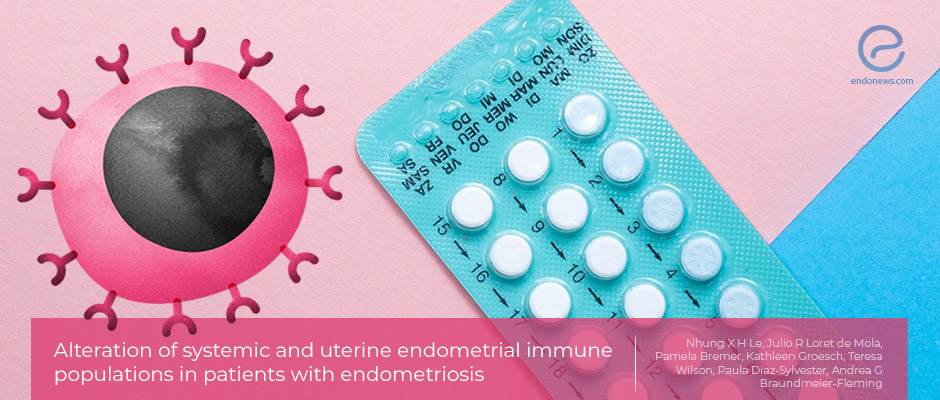Endometriosis and Inflammation: How to Treat it?
Nov 27, 2020
Women with endometriosis have systemic and localized inflammation within eutopic and ectopic endometrial tissues.
Key Points
Highlights:
- Women with endometriosis have systemic and localized inflammation within eutopic and ectopic endometrial tissues that can be reduced with hormonal therapy.
Importance:
- Hormonal therapy could be used to alleviate inflammation in endometriosis.
What's done here:
- Researchers analyzed the immune phenotype of women with and without endometriosis who were either not using hormonal therapy or using monophasic hormonal therapy.
Key results:
- Women with endometriosis who were not using hormonal therapy had lower inflammatory Treg cells and higher inflammatory Th17 cells.
- The Treg over inflammatory Th17 ratio of women with endometriosis not on hormonal therapy was reduced.
- T-cells were highly localized within endometrial tissue found outside the uterus.
- Hormonal therapy reduced systemic and local inflammation as shown by decreased inducible Treg cells and inflammatory Th17 cells.
Limitations:
- There were only 29 women in this study.
- The stage of endometriosis was not taken into account when analyzing the samples.
- The biopsy sample size in each group was small.
Lay Summary
Women with endometriosis have systemic and localized inflammation within eutopic and ectopic endometrial tissues found in a study published in the "American Journal of Reproductive Immunology".
More importantly, the study also found that the inflammation caused by the disease could be reduced using hormonal therapy. This finding could change the lives of women affected by this debilitating disease causing infertility and chronic pain.
It is already known that inflammation plays a key role in endometriosis. However, it is not clear how a woman’s immune phenotype is associated with the disease. The immune phenotype is defined as the observable characteristics of the immune system. Like many other characteristics, the immune phenotype varies between individuals.
In order to characterize the immune phenotype of women with endometriosis, assess inflammatory mediators at play, and determine whether surgical and/or hormonal therapies can restore immune equilibrium, researchers analyzed 29 women with or without endometriosis. The women were either not using hormonal suppression or were on monophasic hormonal therapy. Monophasic hormonal therapy is a type of hormonal therapy that contains equal amounts of the hormones estrogen and progestin for an entire monthly cycle.
The researchers looked at the amount of different immune cells called T-cells in the blood and eutopic endometrium, as well as endometriotic tissues in these women. Specifically, they analyzed the amounts of regulatory T-cells (both natural and inducible) and a subset of T helper cells called Th17. Regulatory T-cells or Treg cells are T-cells that play a key role in suppressing excessive immune responses that could harm the body itself. T helper cells are cells of the immune system that “help” the activity of other immune system cells by releasing cell signaling molecules called cytokines.
The authors found that women with endometriosis who were not using hormonal therapy had lower inflammatory Treg cells and higher inflammatory Th17 cells. Their Treg over inflammatory Th17 ratio was also reduced, indicating systemic inflammation. All types of T-cells were highly localized within endometrial tissue found outside the uterus.
Women with endometriosis on hormonal therapy had decreased inducible Treg cells and inflammatory Th17 cells both in the blood, eutopic endometrium, and endometriosis, suggesting decreased systemic and local inflammation.
The researchers concluded that an imbalance within immune cell populations correlated with increased inflammation in patients with endometriosis and that this could be reduced using hormonal therapy.
Research Source: https://pubmed.ncbi.nlm.nih.gov/33070438/
Inflammation immune system T-cells hormonal therapy

